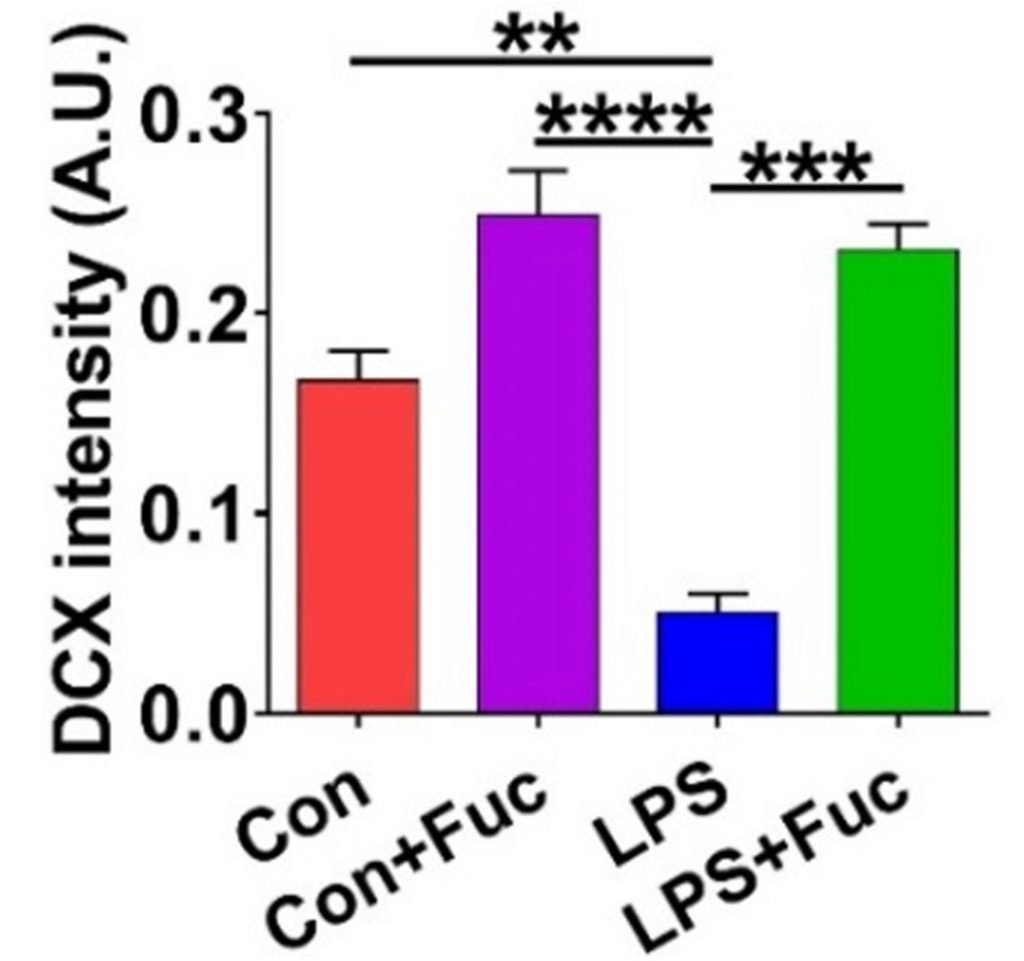Scientists Use Seaweed Molecule to Boost Memory and Increase Brain Cells
Fucoidan — abundant in brown algae seaweed — reduces brain inflammation, increases neuron production, and improves memory in a mouse model for inflammation-induced brain aging.
Highlights:
- Fucoidan boosts the memory of mice modeling inflammation-induced brain aging.
- An inflammatory protein associated with cognitive decline called IL-1β is reduced by fucoidan.
- Injection of fucoidan also promotes the production of neurons, suggesting it protects against brain damage.
A therapy to effectively slow the cognitive decline associated with brain aging has yet to be established. Still, the likelihood of succumbing to Alzheimer’s dementia increases with age while the total population of aged individuals is on the rise. Therefore, treatments targeting the underlying causes of brain aging, such as inflammation are necessary.
Now, Wang and colleagues from Zhengzhou University in China report in the International Journal of Biological Macromolecules that fucoidan reduces brain inflammation and improves memory in mice subjected to antigen-induced inflammation. Furthermore, they show that fucoidan increases the production of new neurons.
“Our results indicated that fucoidan may represent a medicinal and food homologous functional agent to improve cognitive function,” said the authors.
Fucoidan Boosts Memory, Reduces Brain Inflammation, and Promotes the Production of New Neurons
Chronic brain inflammation plays an important role in the progression of neurodegenerative diseases. To trigger brain inflammation, Wang and colleagues injected mice with a molecule called lipopolysaccharide (LPS). Similar to what has been observed in aged mice, the LPS (exposed) mice exhibited deficits in learning and memory, measured with the Morris water maze test. However, injecting the LPS mice with fucoidan countered these learning and memory deficits.

(Wang et al., 2022 | Int. J. Biol. Macromol.) Fucoidan Boosts Memory. Mice with brain inflammation (LPS, blue) spent less time in the target quadrant of the Morris water maze than normal mice (Con, red), suggesting cognitive impairment. However, fucoidan (LPS+Fuc, green) increased this time, suggesting improved cognition.
To assess brain inflammation, Wang and colleagues measured a pro-inflammatory protein called IL-β, which is associated with neurological diseases, including cognitive impairment. They found that IL-β was substantially elevated in the brains of LPS mice. However, LPS mice treated with fucoidan had far less IL-β in their brain, suggesting that fucoidan reduces brain inflammation.

(Wang et al., 2022 | Int. J. Biol. Macromol.) Fucoidan Reduces Brain Inflammation. Mice with brain inflammation (LPS, blue) have nearly 200-fold higher levels of brain IL-β than normal mice (Con, red), suggesting increased brain inflammation. However, fucoidan (LPS+Fuc, green) lowered IL-β to nearly normal levels, suggesting reduced inflammation.
To determine if fucoidan protects against brain damage, Wang and colleagues measured the production of new neurons with a marker called DCX. While LPS mice had markedly less DCX in their brain than normal, LPS mice treated with fucoidan had normal levels of DCX. These findings suggest that fucoidan promotes the production of new neurons and protects against brain deterioration.

(Wang et al., 2022 | Int. J. Biol. Macromol.) Fucoidan Promotes New Neuron Production. Mice with brain inflammation (LPS, blue) have less than half the DCX intensity of normal mice (Con, red), suggesting substantially reduced new neurons. However, fucoidan (LPS+Fuc, green) normalizes DCX levels, suggesting a protective effect against brain degeneration.
Overall, the findings of Wang and colleagues suggest that fucoidan can mitigate age-related cognitive impairment by reducing brain inflammation and protecting against brain damage. Repeating these studies with aged mice will help determine if these results are more applicable to human brain aging.
Also, since fucoidan was administered via injection, the researchers bypassed any potential issues with absorption. This may pose a problem, as individuals are more likely to intake fucoidan orally. Depending on fucoidan’s absorption rate into the bloodstream from the intestine, a much higher dose than the dose used in this study may be necessary to see similar results. These questions could also be addressed with more studies that administer fucoidan to mice orally.
Other Anti-Aging Effects of Fucoidan
In a recent publication by Harvard scientists, fucoidan was highlighted as a potential compound for preventing brain aging. This is because fucoidan has been shown to increase SIRT6 — an enzyme associated with increasing mouse lifespan — by 14-fold. Fucoidan itself has been shown to increase the lifespan of flies while promoting neuroprotective effects like what was shown by Wang and colleagues in mice. From these findings, the Harvard authors said fucoidan — which can be purchased in supplement form — is a “promising anti-aging phytochemical.”
Model: Male C57BL/6 mice inflicted with LPS to induce inflammation
Dosage: Intragastric injection of 10 mg/kg of fucoidan each day for 3 weeks

